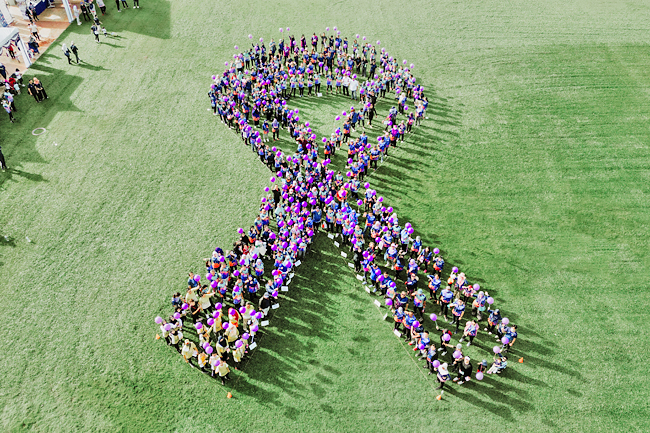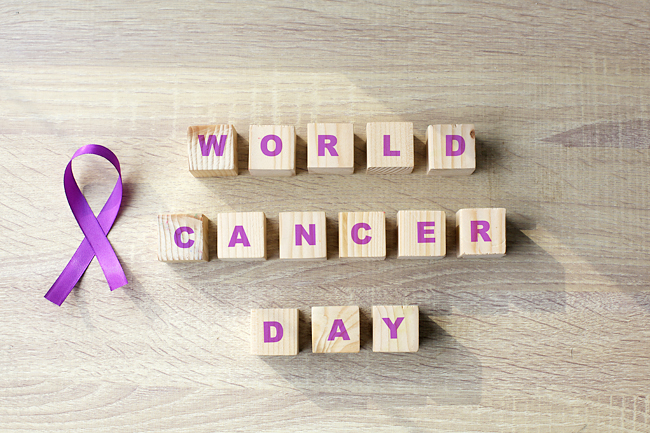Dr Vijay Kumar Srinivasalu & Dr Jacob Samuel Justin
World Cancer Day is an annual event that takes place on February 4 to raise awareness about cancer and to encourage its prevention, detection, and treatment. The day aims to promote research, prevent cancer, improve patient services, raise awareness, and mobilise the global community to make progress in cancer care.
World Cancer Day was established on February 4, 2000 at the World Summit Against Cancer for the New Millennium in Paris, and the Union for International Cancer Control (UICC) has been leading this global uniting initiative ever since.
According to UICC, around 10 million people around the world, die of cancer every year.
By the end of 2030, experts predict that this would increase to 13 million cancer deaths.
EQUALITY IN CANCER CARE FOR ALL: THE IMPORTANCE OF CLOSING THE CARE GAP
The theme of “Close the Care Gap” is a major focus of the UICC for a period of three years, starting from 2022 till 2024. We are living in an era of amazing advances in the field of cancer diagnosis and treatment.
The advent of molecular diagnostics has enabled doctors to tailor treatments to an individual’s specific gene mutations, leading to more effective and less toxic treatments.
Targetted therapies are drugs that are designed to attack specific targets on the cancer cells while minimising harm to the surrounding normal cells.


These drugs have shown promising results in the treatment of various types of cancer and improved survival for many patients.
Immunotherapies are drugs that help the immune system recognise and attack cancer cells.
These treatments have been particularly effective in treating certain types of cancer, such as melanoma and lung cancer, and have improved survival in most of these patients.
Despite these advances, half of the world’s population do not have access to a full range of health care services and the situation has become worse after the COVID-19 pandemic.
Care gap refers to the disparity in access to cancer care between different regions and populations around the world.
Despite the growing global burden of cancer, many people still do not have access to essential cancer services, such as early detection, diagnosis, treatment, and palliative care.
This results in a “care gap” between those who can access cancer services and those who cannot.
For example, the survival for children with cancer is 80 per cent in high income countries as compared to 20 per cent survival in low-income countries.
Even in the United States, the five-year survival for white women with cervical cancer is 71 per cent while it is only 58 per cent for black women. 90 per cent of deaths due to cervical cancer happens in low- and middle-income countries. The good news is that these inequities in healthcare can be changed for good.
In the first year (2022) the focus of the close the care gap campaign as per UICC was to recognise and understand the inequities in cancer care around the globe and their impact on public health.
We looked at hard facts and realised that inequity in cancer care could cost lives. In addition, education, financial status, geographical location, gender and ethnicity are just a few factors that could negatively affect care and outcome.
During the current year 2023, the focus of the theme close the care gap is to celebrate the real-world progress, and to motivate and unite friends, family, co-workers and communities to act in whatever way possible to eliminate the inequities in cancer care.
This could be as simple as arranging transport to cancer treatment for a fellow resident or create awareness for early detection campaign in local schools.
It also calls for cancer communities around the world to come together to build stronger alliance and innovative new collaborations.
The third year of the campaign (2024) is about bringing attention to a higher level and those who are in power to make policy decisions and to create innovative strategies designed to confront inequity and invest resources to achieve a just and cancer-free world.
HOW TO GET INVOLVED
Every year on the World Cancer Day, hundreds of activities and events take place around the world, gathering communities, organisations, and individuals in the private sector to promote public awareness regarding prevention, screening, and early detection of cancer.
Brunei Darussalam has been a proud member of the UICC for several years in promoting World Cancer Day. This year, The Brunei Cancer Centre (TBCC) of the Pantai Jerudong Specialist Centre (PJSC) has planned several public activities for the World Cancer Day 2023 which include an amazing race, cycle to beat cancer, walk to beat cancer and formation of a human ribbon to raise public awareness regarding cancer prevention, early detection, and treatment. The campaign continues throughout the month of February with radio talks and television interviews highlighting the importance of early cancer detection in the community.
PREVENT CANCER BY TAKING CONTROL OF YOUR RISK FACTORS
According to the World Health Organization (WHO), nearly one third of cancer can be prevented by modifying the known risk factors for cancer. Tobacco alone causes eight million deaths every year and accounts for at least 25 per cent of all cancer deaths.
In Brunei Darussalam, the lifetime risk for developing cancer is one in four for males and one in three in females. According to data from the Brunei Darussalam Cancer Registry (BDCR), the top three cancers in males are colorectal, lung and prostate cancer whereas in females the top three cancers are breast, colorectal and uterine cancers.
The incidence of cancer in males and females has been steadily increasing. There has been a 22.8- per-cent increase in the number of new cancer patients diagnosed over five years from 2015-2019, compared to 2010-2014. Nearly 70 per cent of patients are diagnosed in advanced stages which reduces the chance of providing curative treatment.
If this progressive trend continues, cancer cases are projected to rise by an alarming 108 per cent between 2020 and 2040.
These worrisome statistics could be attributed to several factors including changing lifestyles, smoking habits, dietary habits, consumption of toxic substances including alcohol and caffeine-containing drinks, lack of physical activity and growing morbid obesity.
Brunei Darussalam’s Ministry of Health (MoH) is conducting health awareness campaigns on regular basis highlighting the importance of healthy diet, regular exercises, and abstinence from smoking. It has also taken a bold step to ban the sale of cigarettes and tobacco products within the country since 2005 which could help reduce the incidence of tobacco related cancers in the country.
There are several healthy strategies to prevent cancer: not smoking or using tobacco products; avoiding/limiting alcohol consumption; eating a healthy diet that is low in processed food and high in fruits, vegetables and whole grains; regular physical activity, controlling being overweight and obesity; protecting yourself from sun exposure and other sources of ultraviolet (UV) radiation; and getting vaccinated against certain types of cancer, such as Human Papillomavirus (HPV) and Hepatitis B vaccine.
EARLY DETECTION IS KEY: SCREENING FOR CANCER CAN SAVE LIVES
There is strong data which shows that at least one third of all cancer deaths can be prevented through routine screening, and early detection and treatment. Screening tests are available for several common cancers.
The main aim of screening is to detect cancer before it causes symptoms so that treatment is easy with high cure rates. For example, when breast cancer is detected early, the five-year survival rate is 99 per cent.
However due to the stigma associated with breast and cervical cancer, women do not talk freely about their health issues. This coupled with lack of awareness about early signs and symptoms leads to significant delay in the diagnosis and advanced stage of presentation.
The MoH has implemented the National Health Screening Programme (NHSP) which offers screening for three types of cancer – colorectal, breast, and cervical. The screening for colorectal and breast cancer has been available since 2019. To learn more about the NHSP, visit the https://ppkk.gov.bn website, which is available in both English and Malay.
The Early Detection and Cancer Prevention (EDCP) department at the PJSC has been in operation since 2019, providing early detection services and screening for various common cancers in Brunei. Additionally, it offers education and genetic counselling and testing for high-risk family members.
The EDCP programme supports and enhances the efforts of the NHSP and actively promotes cancer awareness through community outreach initiatives.
BREAST CANCER
In Brunei, the lifetime risk of breast cancer is 6.3 per cent, which is one in 16 women.
Screening mammograms have been proven to decrease the number of deaths caused by breast cancer by 15-20 per cent. The MOH recommends women between the ages of 40 and 69 to get a mammogram every three years.
CERVICAL CANCER
It is widely recognised that 99 per cent of cervical cancers are caused by infection with high-risk HPV.
The recommended cervical cancer screening tests include HPV DNA testing and the Pap smear test, which can be used individually or together. In Brunei, the Pap smear test is available at the EDCP as well as at various health clinics.
COLORECTAL CANCER
In Brunei, the incidence of colorectal cancer is higher among individuals between the ages of 55 and 59, both men and women.
To reduce the risk of death from colorectal cancer, several screening tests are available, including colonoscopy, sigmoidoscopy, and stool tests (faecal immunochemical test).
These tests not only help in early detection of colorectal cancer but also in preventing its development. This is because they can identify abnormal polyps, which can be removed before they turn cancerous.
HARNESSING THE POWER OF CANCER SURVIVORS
Cancer survivors can be excellent goodwill ambassadors for creating awareness among public about early detection and treatment and to share their cancer journey with others diagnosed with cancer or their families. This may help in relieving the anxiety and stress associated with the diagnosis and treatment of cancer.
UNITING FOR IMPROVED CANCER CARE AND EQUITY
World Cancer Day 2023 is an opportunity to be on the global platform with cancer communities from other countries, to discuss our challenges and to find solutions.
It also gives us an opportunity to raise awareness about the challenges faced by cancer patients and to advocate for improvements in cancer care.
Closing the care gap is a crucial aspect of this effort, as it ensures that all patients, regardless of their background or location, have access to the same level of quality cancer care.
This requires a collaborative effort from healthcare providers, policymakers, and communities, as well as investment in research, education, and innovation.
By working together, we can bridge the gaps in cancer treatment and provide all patients with the hope, support, and resources they need to fight this disease. On this World Cancer Day, let us recommit to close the care gap and create a future where all cancer patients have the best possible care with better quality of life.







